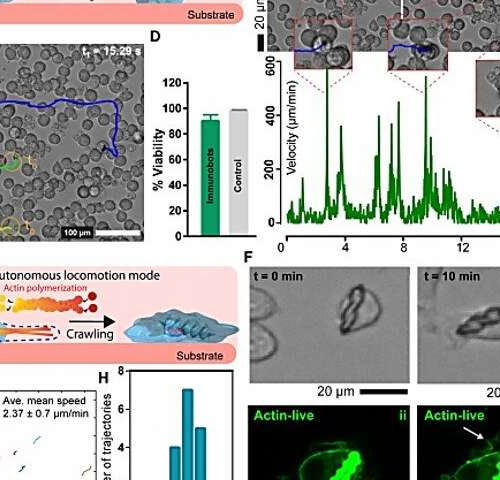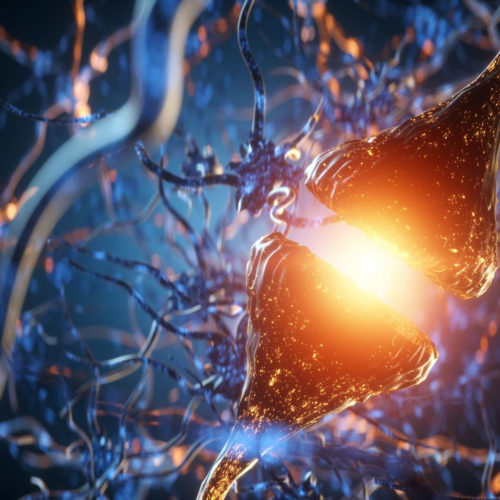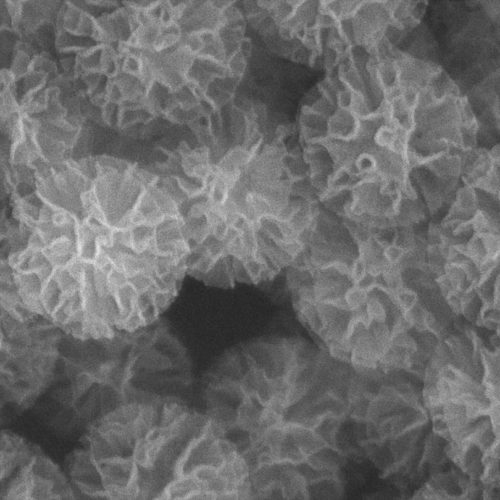WAKE FOREST BAPTIST MEDICAL CENTER In a new study from the Wake Forest Institute for Regenerative Medicine (WFIRM) researchers have developed an optimized cellular platform for delivering Factor 8 to better treat patients with hemophilia A. Hemophilia A is a genetic disorder caused by a deficiency in, or the absence of, coagulation Factor 8), an...
Tag: <span>nanotechnology</span>
Mindfulness training helps men manage anger
Men who learned to control their anger were less violent towards their partners NORWEGIAN UNIVERSITY OF SCIENCE AND TECHNOLOGY The last few months have been particularly difficult for people living in a violent relationship. But a few glimmers of hope are finally emerging from the coronavirus nightmare. “For a lot of people, the shutdown has...
Interaction dynamics between designer microrobots and the immune system
by Thamarasee Jeewandara , Medical Xpress Optimization of microswimmer shape for targeted drug delivery. Illustration of a future use case for the medical microrobots emphasizing an important design tradeoff. Double-helical magnetic microswimmers with filled internal cores are 3D-printed as concentrated drug-carrying bodies. Three morphological derivatives of the same design are tested with the same body...
“Love hormone” oxytocin could be used to treat cognitive disorders like Alzheimer’s
Scientists discover for the first time that oxytocin could be a potential new therapeutic option for cognitive disorders such as Alzheimer’s disease TOKYO UNIVERSITY OF SCIENCE OXYTOCIN, THE HORMONE THAT INDUCE FEELINGS OF LOVE AND WELL-BEING WITHIN US, ARE FOUND TO REVERSE SOME OF THE DAMAGE CAUSED BY AMYLOID PLAQUES IN THE LEARNING AND MEMORY…...
Wearable patch may provide new treatment option for skin cancer
WEST LAFAYETTE, Ind. – Conventional melanoma therapies, including chemotherapy and radiotherapy, suffer from the toxicity and side effects of repeated treatments due to the aggressive and recurrent nature of melanoma cells. Less invasive topical chemotherapies have emerged as alternatives, but their widespread uses have been hindered by both the painful size of the microneedles and...
Elon Musk says his Neuralink company will do human brain implants ‘within a year’ to help cure injuries – and the device could eventually enable symbiosis with AI
Elon Musk spoke on Joe Rogan’s podcast about his company Neuralink Musk said the firm will have a brain implant ready ‘within a year’ The chip could fix brain injuries that result in aliments of the body It would be inserted to the skull by a robot that connects electrodes to the brain Musk also...
Nanodevices for the brain could thwart formation of Alzheimer’s plaques
CREDIT: CENTER FOR NANOSCALE MATERIALS, ARGONNE NATIONAL LABORATORY Alzheimer’s disease is the sixth leading cause of death in the United States, affecting one in 10 people over the age of 65. Scientists are engineering nanodevices to disrupt processes in the brain that lead to the disease. People who are affected by Alzheimer’s disease have a...
Robot Navigates Tiny Ultrasound Pill Through Colon
MEDGADGET EDITORS While endoscopes give physicians a view into the interior of the GI tract, they are limited in the areas that they can reach and the imaging they can provide. Miniaturized imaging devices in the form of swallowable electronic pills have been around for a few years now. They move through the entirety of the GI tract, but...
Can nanotechnology help treat Alzheimer’s?
June 19, 2018 by Ileana Varela, Florida International University Alzheimer’s disease (AD) is the most common form of dementia. It takes a devastating toll on patients and family members, who are usually the caregivers. Current drugs only treat symptoms of AD, not its causes. June is Alzheimer’s and Brain Awareness Month. FIU researchers are studying a new approach...
Nanoparticles derived from tea leaves destroy lung cancer cells: Quantum dots have great potential
Nanoparticles derived from tea leaves inhibit the growth of lung cancer cells, destroying up to 80% of them, new research by a joint Swansea University and Indian team has shown. IMAGE: THIS IMAGE SHOWS A SIZE COMPARISON IN NANOMETRES OF A FOOTBALL, HUMAN HAIR AND QUANTUM DOTS, WHICH ARE LESS THAN 10 NANOMETRES. The team made the discovery...





